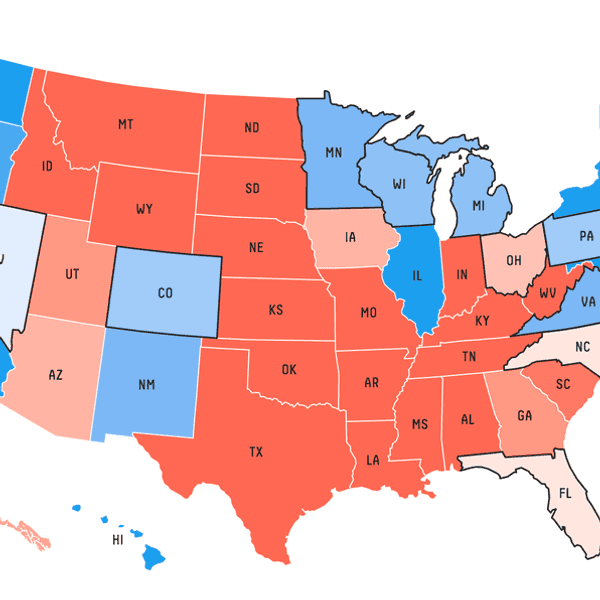If one were to listen only to the rhetoric on the presidential campaign trail thus far, a very clear picture of campaign finance would be painted: Citizens United v. Federal Election Committee (FEC) was corrupting and thus campaign finance reform is immediately necessary to overturn the decision. The first bullet on Hillary Clinton’s campaign finance reform plan on her website is “Overturn Citizens United.” Bernie Sanders frames it as a scenario in which money is preventing democracy and vows to only appoint Supreme Court nominees who hold this view and plan on overturning the decision, as well. Even Donald Trump highlights his partial self-funding (which is occurring at least until the general election, last I heard), as it does not tie him to any special interests. But as the book "Plutocracy United" notes, this is a limiting view of the magnitude of the Citizens United’s effects.
I argue, like "Plutocracy United" author Richard Hasen, that while this is a problem of economic inequality manifesting as political inequality and should be addressed as such, it may not be as detrimental to our political landscape as it has been characterized. This is for three reasons. One, Citizens United is a perfect example of neoliberal economic policy that utilizes the government as a tool for crafting competition while simultaneously claiming deregulation as a laissez-faire style of governance. But most of the campaign finance legislation and court cases decided post-Federal Election Campaign Act of 1972 (FECA) were derived from this same rationale, rolling back the original restrictions of FECA, creating inconsistent state restriction standards or inadvertently moving money into PACs. Accordingly, the literal policy may be different post-Citizens United, allowing larger sums of money to move around (especially with the creation of SuperPACs by the SpeechNow.org v. FEC case in Citizens United’s wake), but the general campaign finance climate hasn’t changed much.
Second, this lack of change is visible in the absence of direct correlation between campaign contributions or spending and a number of potential outcome biases. Higher candidate campaign spending does not equate to election by the people as their representative, and large contributions to a candidate only truly ensure access, not decision-making power. And while the partisan divide on opinions over whether or not Citizens United should be overturned could make it seem as if the Republican party is spending more heavily and thus influencing more policy, money is actually flowing freely on both sides of the aisle. This further entrenches Congress in hyperpartisanship, with influential donors holding representatives accountable for embodying party values.
And third, one of the potential solutions to political inequality resulting from economic inequality is already underway: netroots organizing, which is essentially the use of online interest groups mobilized by the people to exert political influence on their behalf, often directly against the influence chased by big money. Ironically, the ability of the people to organize on a large-scale like this is also spawned from the Citizens United decision, as the lack of restrictions can be utilized by the masses as much as it can the elite in order to make their voices heard. Issue advocacy groups have always been a vehicle for the people to insert their opinions into the political dialogue, but with the evolution of the Internet and social media there is a new opportunity for individuals of these groups to be heard more easily by their peers, snowballing the groups’ size and reach, often overshadowing the corporate media in social media landscapes. While the reach of grassroots organizing has been completely revolutionized by social media, the level of action resulting from those reached is often less than necessary to actually organize on behalf of issues. This is oft-used term “slacktivism” in direct practice. Thus, while these practices have been helpful in ensuring the scales don’t tip too heavily towards the will of the moneyed and influential, at best, citizen engagement in such endeavors falls below the levels necessary to incite real change, due the burden it puts on individuals to devote time or money.
And even if such a group mobilized on the platform of overturning Citizens United, it would take Congress legislating in line with the will of the people. This brings us briefly to the second possible solution, a Constitutional Amendment. I say briefly because the likelihood that such an amendment (which is difficult legislation to pass in any circumstance) would pass our deeply partisan and gridlocked Congress is low, especially considering its current Republican sway, as these legislators do not generally support overturning Citizens United. And amendments or new regulations cannot be passed on the state level, to later influence federal policy because of the language of Citizens United, which deemed certain restrictions as unconstitutional.
Then, we must go full circle, back to the Supreme Court, who can reverse the precedent of constitutionality they previously set. This presidential election, which was always likely to decide a court seat or two, coupled with the unexpected death of Justice Scalia, has provided a narrow window for the American people to vote for president with Supreme Court nominees and potential cases clearly in mind. And with the lifetime appointment of Supreme Court Justices, if this window closes it will likely not reopen for a generation, during which Citizens United as the standard for campaign finance policy will become legitimated. Thus, this election is the last chance for the citizenry of this country to speak decisively on Citizens United. But if they voice a desire for it to be overturned, the Supreme Court must still choose to hear a case that could result in an overturning and then must decide as such. What true reformative campaign finance policy could arise from such a verdict, though, is unclear, as new regulations would have to be produced in a still bitterly divided legislative environment, requiring an aforementioned well-mobilized citizenry in order to have their concerns heard.





















